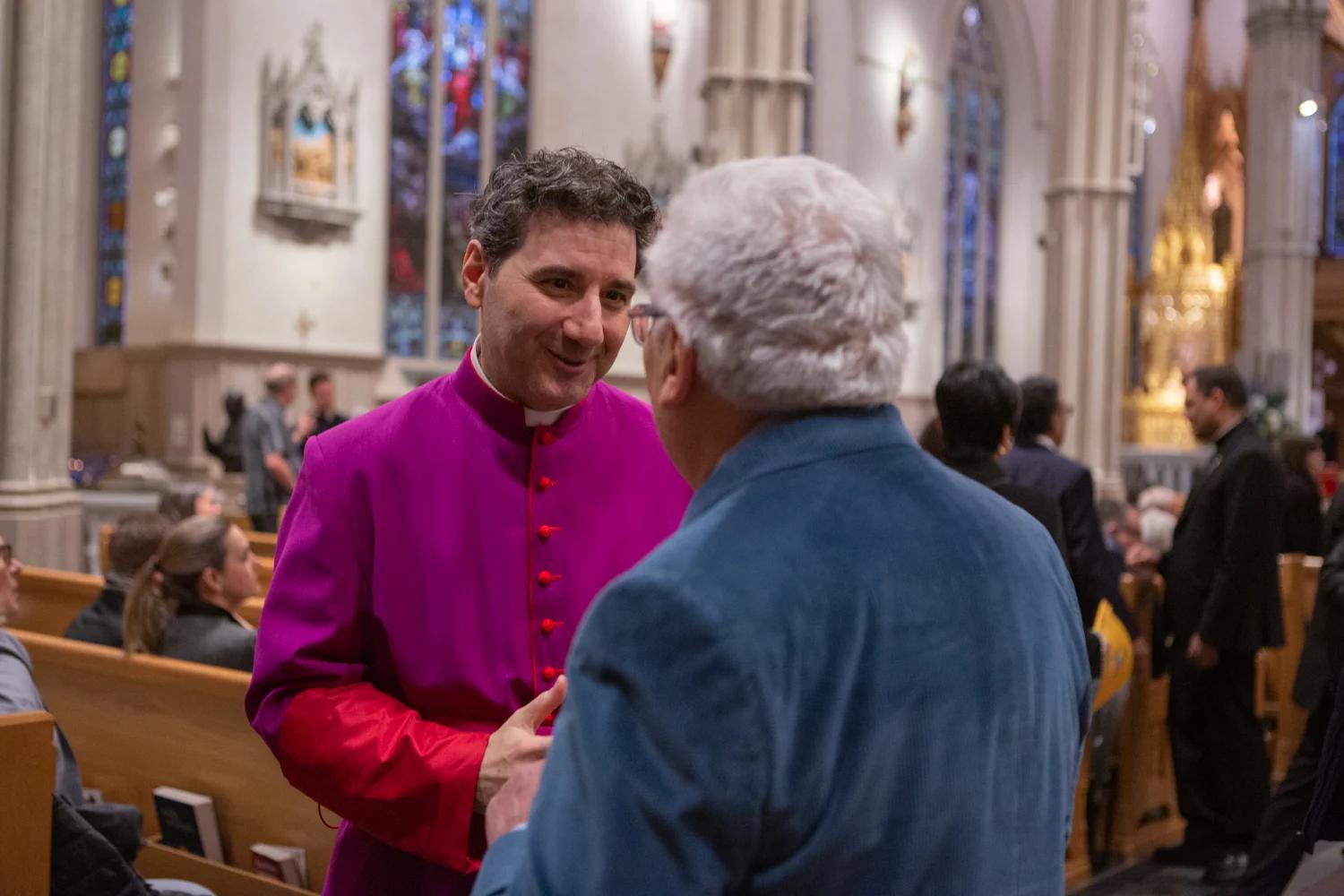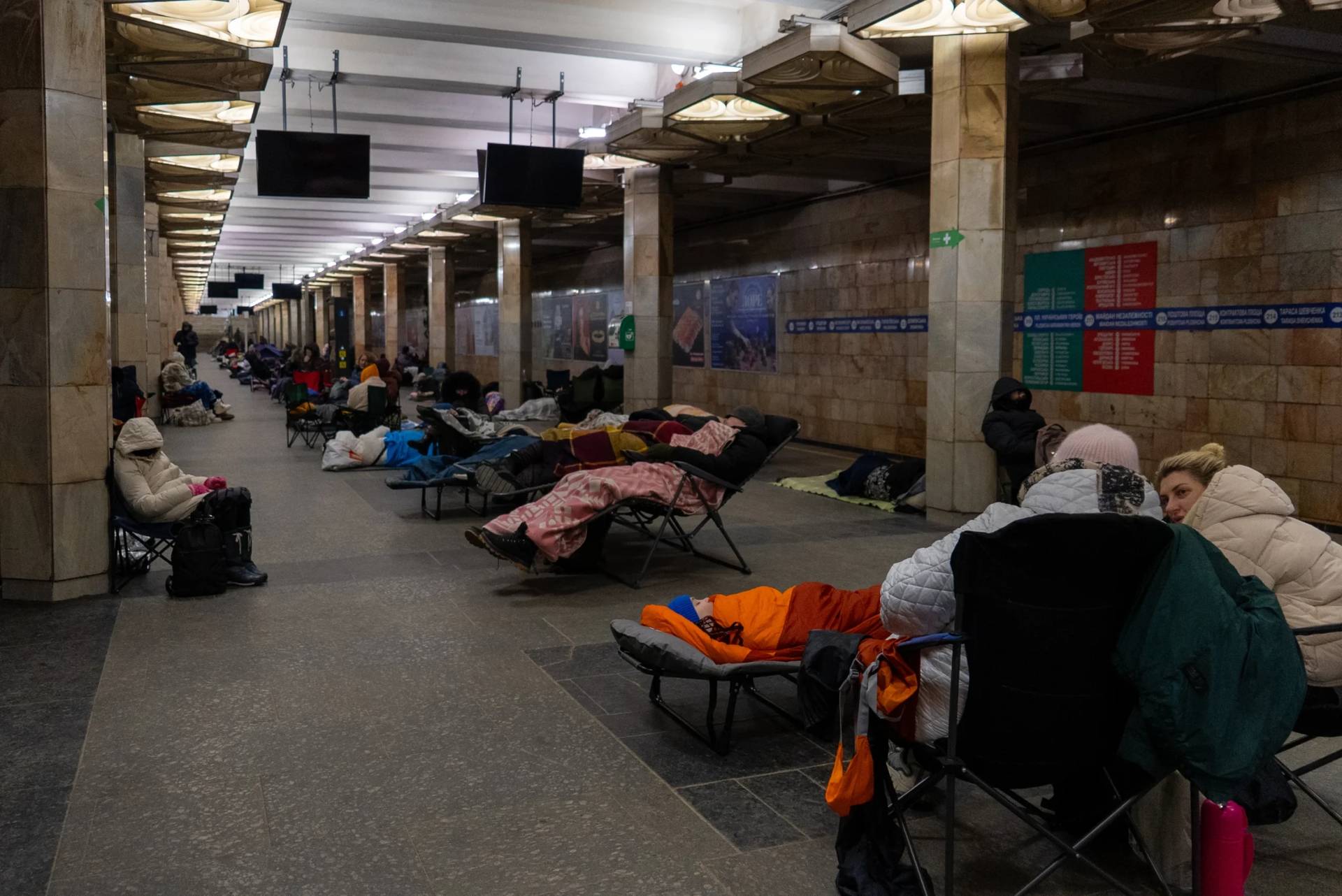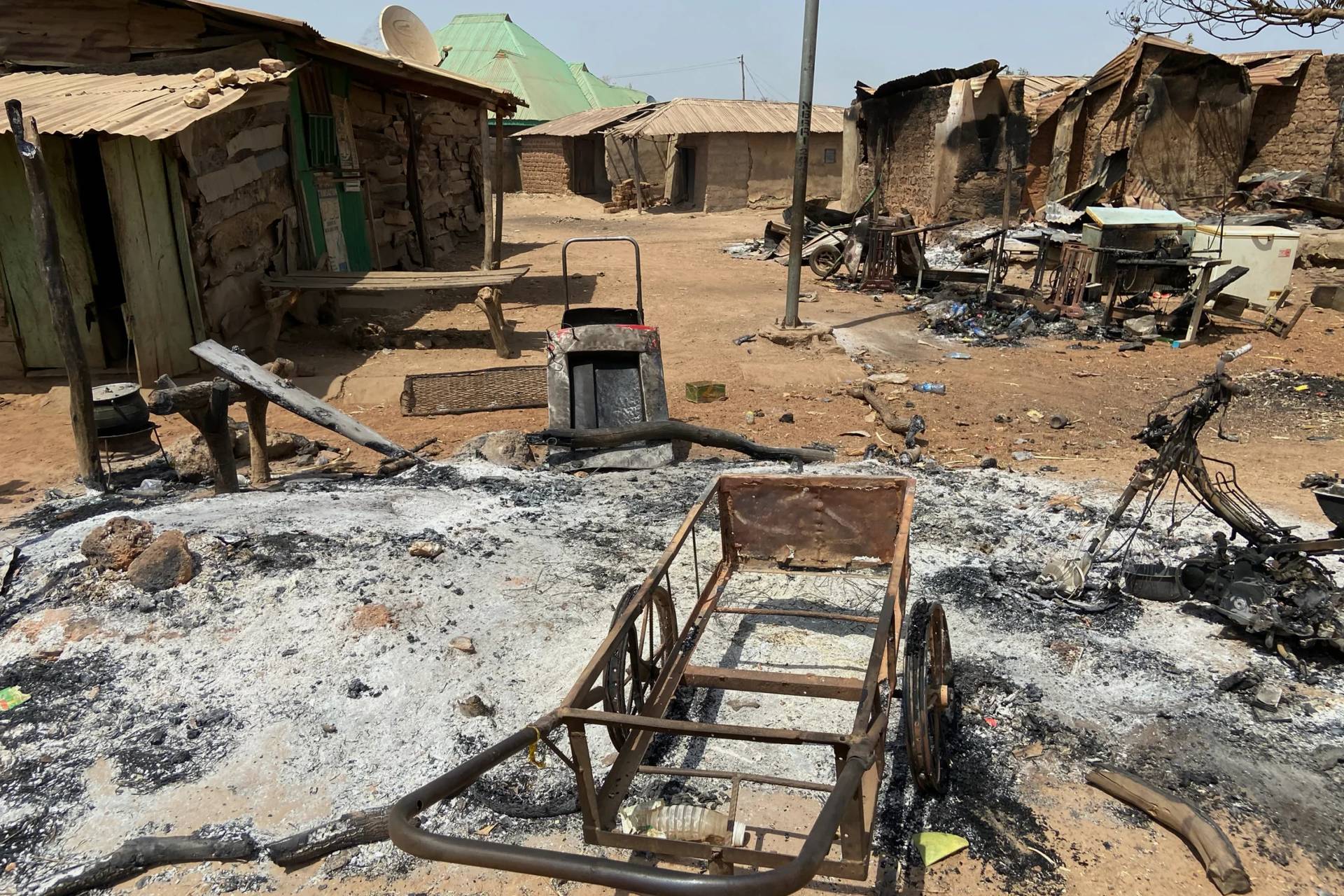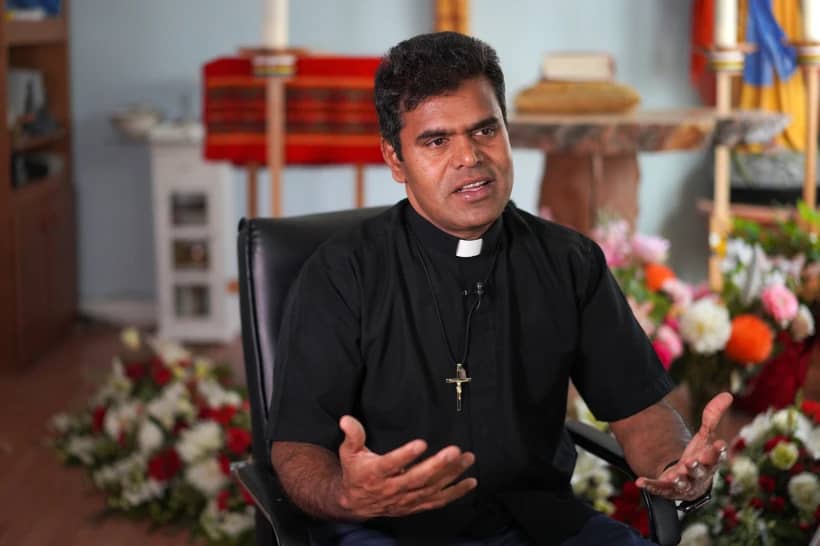NEW YORK – While Cardinal-elect Francis Leo’s upcoming elevation isn’t necessarily a surprise – a cardinal has led the Archdiocese of Toronto for all but eight years since 1934 – one thing that’s unique about his elevation is his age.
When Leo, 53, officially becomes a cardinal on December 8, he will be one of the nine youngest of what will then be 256 cardinals – eight of whom were born in the ‘70s. Leo said that those eight bring to the College of Cardinals a unique worldview from growing up in the ‘70s, ‘80s, and ‘90s.
“What went on in the world at that time has influenced our lives and our faith journey,” Leo said. “Be it growing up with the Pontificate of John Paul II … the advent of computers, technology, and the internet, for example, and the world village sort of thing and the interconnectedness that we grew up with … I think it brings a perspective of engaging with the world.”
It also brings, Leo added, a perspective of not being scared of the world, and not kneeling before the world, but instead “humbly with gospel boldness dealing with matters and the challenges of a secular culture in which we were born and raised in.”
“Though the Church has always been such a great part of my life, nonetheless, we live in this very secularized culture, and that sort of colors how you proclaim Christ to the world today knowing that the world is secular, and therefore x,y,z in its stances … and so how we bring Christ to this world right here now – a world which is different than 100 years ago and 70 years ago,” Leo said.
“But yet, also beautiful things,” he continued. “Growing up at our age in a Church where we have come to understand on a deeper level the vocation to holiness, the universal call to holiness thanks to Vatican II, the place of the laity in the Church to collaborate and be co-responsible with the clergy, for example.”
Not included in those eight, but who shares a similar perspective, is the soon to be youngest cardinal – Cardinal-elect Mykola Bychok of the Eparchy of Saint Peter and Paul of Melbourne of the Ukrainians. Bychok is 44-years-old.
The perspective his relative youth brings to the College of Cardinals was a part of a recent conversation Crux had with Leo about his elevation. The cardinal said that he wasn’t given any heads up that it was coming, admitting he found out after a wave of congratulations messages led him to search his name online, where he ultimately saw the news.
Right after, Leo said, he went to pray.
“My initial reaction was shock, surprise, and then going through my mind what this means for my ministry here in Toronto and for the universal Church, and so I did an act of faith to the Lord, reaffirming my desire to serve him all of the days of my life and to serve him in this new way now,” he said. “It’s an honor, on one hand, but it’s really a service that we’re called to give, and our whole life is one of service … and this is just another dimension of our life as servants of the Lord and of the Church.”
Leo said his first priority remains the Archdiocese of Toronto and serving the people there. Second, he expects he will be busier in his role as an advisor to Pope Francis. Beyond himself he said his elevation signifies the archdiocese’s closeness to Rome.
“There’s an even greater dimension to who we are as Church in Toronto since we are now profoundly linked, even in this way, through the cardinalate to the rest of the world, to the rest of the dioceses, and with Rome. There’s a universal aspect, and there’s a unity with the Apostolic See aspect,” Leo said.
For Leo, the elevation continues what has been a meteoric rise through the episcopacy. 26 years after he was ordained a priest in 1996, Leo’s episcopal ordination to serve as an auxiliary bishop of Montreal was in 2022. The next year, he was appointed and installed as the archbishop of Toronto, succeeding Cardinal Thomas Collins who had led the archdiocese since 2007.
Of the 21 new cardinals, Leo is the only one from North America.
Leo said he has received no explanation on the reason for his elevation, but noted that Toronto almost always has a cardinal, and that it’s Canada’s largest diocese. He also, though, speculated that his elevation is “perhaps a vote of confidence for the Canadian Church that Pope Francis wanted to highlight.”
“It’s hard to read the mind of the Holy Father because no explanation was given, but Toronto is the biggest diocese in the country, and it is a multicultural reality where the face of Catholicism is changing thanks to the new Canadians and how fervent they are,” Leo recently told Crux.
Toronto, like many other cities in Canada and the United States, has experienced a demographic shift in recent years amid an influx of immigrants from many different countries. In fact, according to a report from the Toronto Metropolitan University this past summer, Toronto’s population is the fastest growing of any city in Canada and the United States.
Leo said the response to immigrants is one of the biggest challenges the Canadian Church faces. Other challenges the cardinal-elect cited, which are common across the west, include homelessness in certain areas, addiction, the breakdown of the family unit, abortion, and “overall how Catholics are living their faith.” Euthanasia in particular is another challenge Leo cited.
All of the above fall in one way or another under the umbrella of what he said is the biggest challenge in Canada, which is a global challenge for the Church: secularism. To combat secularism, Leo said, means getting back to the basics of the gospel of Jesus, and living a life of service.
“Authenticity, fidelity to the gospel, to holy mother Church. Humility. Not fear because we rely on the Holy Spirit who is the soul of the Church. The gift of self. Every day we are called to go beyond and keep making our lives a gift to the Lord, to the world, to others,” Leo said.
“Attentive to what the world is saying, and trying to respond with the greatest gift we have, that of faith and that of Jesus,” he continued. “Avoiding the trappings of polarization, divisions, but bringing the beauty of the gospel, the truth and the goodness of God, and building communion, never division.”
Follow John Lavenburg on X: @johnlavenburg














